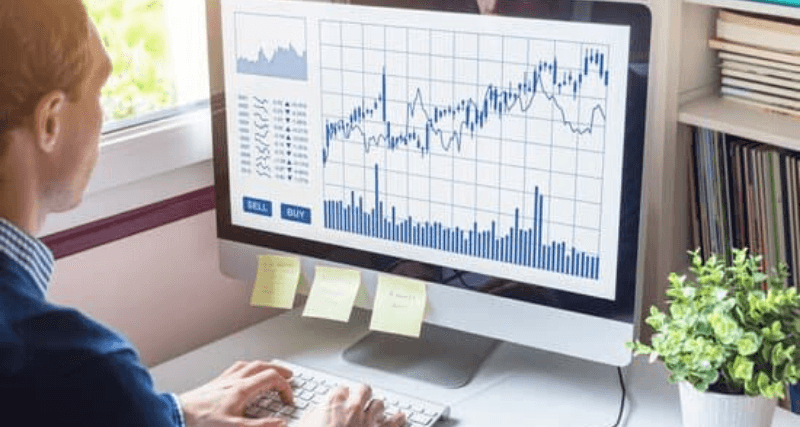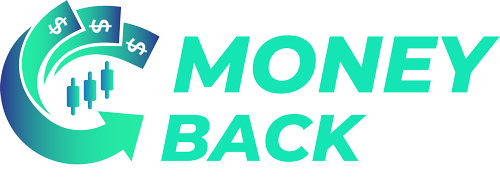
If you say Forex is about trading foreign currencies, most people would wonder if that has anything to do with exchanging currencies at a foreign exchange booth at an airport or bank (see pic below). Once you understand what makes these markets work, you can explain yourself at a dinner party, and better yet, you can become a successful trader.
Forex (or FX) is an acronym for the foreign exchange market or currency market, where currencies from different countries are valued and exchanged. An individual or institution buys one currency and sells another in a simultaneous transaction. Currency trading always occurs in pairs where one currency is sold for another and is represented in the following notation: EUR/USD or USD/JPY. The exchange rate is determined by supply and demand.
What Exactly is Traded in Forex?
It is not a paper stock or physical commodity. It is cold hard cash. More accurately, it is bits of data that represent a tangible currency. However, it is not a single currency you are buying or selling, but rather you are trading one country’s currency against the other. This unique interaction results in currency being traded in pairs. For example, the Euro can be traded against the Dollar, and thus you can buy a currency pair of EUR/USD that represents how many US dollars one Euro is worth. There are hundreds of currencies throughout the world (many of which are tradable), but there are several key currencies and pairs which account for the majority of Forex volume:
| Popular Currency | % Traded | Popular Pair | % Traded |
|---|---|---|---|
| Dollar (USD) | 86.30% | ||
| Euro (EUR) | 37% | EURUSD | 28% |
| Yen (JPY) | 16.5% | USDJPY | 17% |
| Pound (GBP) | 15 % | GBPUSD | 14% |
| Franc (CHF) | 6.8% | USDCHF | 4% |
| Dollar (AUD) | 6.7% | AUSDUSD | 5% |
| Dollar (CAD) | 4.2% | USDCAD | 4% |
Source: Bank for International Settlements (BIS) triennial survey (www.bis.org) |
Types of Forex Markets
The three potential markets for a Forex investor to trade currency are spot market, the currency futures market, and the currency forward market.
The spot market is currently the largest market for exchange. The spot forex market is where currencies are bought and sold instantly at their current price at an agreed-upon exchange rate. These exchanges are typically facilitated by either by a broker or a bank and most of us retail traders will only trade in the spot market.
In a typical spot retail transaction, we will see the current exchange rate of EUR/USD, quoted in our broker platform as 1.4213 ask price, for instance. We will buy at market $1000 of it (1 micro lot) instantly at the quoted ask price with the click of a button, minus a small spread or commission cost, and sell it minutes later for a profit or loss, calculated in pips and dollars. We might only have $1000 in our account, but because the typical forex broker gives us 100:1 leverage, we only need $10 margin in our account trade that $1000 unit size.
In the currency futures market, contracts are bought and sold based upon a standard size (much larger than spot forex) and settlement date on public commodities markets. Investors agree to buy or sell a fixed amount of a specific currency at a fixed exchange rate on a fixed date in the future.
The currency forwards markets are similar to currency futures markets with the difference between them being that the terms of the contract between the two parties is determined solely by the parties involved and don’t have to be based on a public commodities market.
Where is Spot Forex Traded?
Forex does not have a physical site, that is, there is no big building like the New York Stock Exchange on Wall Street or the Chicago Board of Trade in Chicago where a bunch of people on the floor or “pit” yell or hand-signal or waive dollar bills to conduct transactions. Instead, Forex operates electronically in the retail off-exchange foreign currency market run entirely through a continuous network of banks and brokers.
Because the currency market is a decentralized market run electronically, there are resulting advantages. Forex traders can trade anywhere, anytime via the internet. It does not have to begin and end the day based on the hours of a particular building or bank located in a particular time zone. Instead, it is 24-hour trading, 5.5 days a week, because there are always different banks operating and offering rates in different places and time zones around the world. Because of its massive liquidity and internet-based platform (no exchanges, no open-outcry pits, no floor brokers), fast-order execution and instant-fill confirmation are routine.
Who Trades Forex?
With over $4 trillion daily trading volume, forex is the largest market in the world, many times bigger than all the world stock and futures markets combined. Not long ago it was the exclusive domain of the mega-rich, banks sending deposits around the world, corporations hedging their exposure to currency risk in different countries or converting their profits, central banks forwarding national economic goals through monetary policy, and billion-dollar hedge funds trying to profit from the market. These same big players still comprise the bulk of the trading volume, but lately the makeup and motives have changed.
The deregulation of the 1990s, coupled with new Internet-based technologies, led brokers to form pools of liquidity for us small traders to have access to the huge speculative opportunity in forex. Traders big and small have been growing in numbers and volume in order to take advantage of small fluctuations in exchange rates for the purpose of speculation and profit.
Forex Advantages
Forex is an exciting market that stands out from all others for a number of reasons:
- The most liquid of all Investment markets (over $4 trillion traded daily)
- Ability to trade anywhere, anytime via the internet
- Instant trade execution with minimum slippage
- 24-hour trading, 5.5 days a week. Sunday evening through Friday afternoon.
- The market cannot be cornered or manipulated by larger participants
- The ability to profit in rising and falling markets
- Flexible leverage and lot trading with low margin requirements
- Hedging option: you can hold long and short positions on the same currency
- Most brokers charge spread only, not commission
Each of these reasons in itself makes Forex more attractive than other markets, and combined together, there is no contest: Forex affords more opportunities than other markets at much lower starting amounts and costs. These advantages are illustrated more vividly in our section called FX Advantages over Stocks and Futures.
All these advantages do not mean that Forex is a cakewalk, far from it. While the forex trading environment might have more advantages than others, all markets are dangerous for all traders, especially for inexperienced traders, and forex is no exception. In fact, there are more ways to lose in forex than to succeed. If you jump into it unprepared, guns blazing with real money, be prepared to lose your money in short order. The graveyards of Forex are littered with the remains of the inexperienced traders devoured by those more experienced.
We are providing the contents of this education section with the aim to arm you with the knowledge, tips, and strategies to help you succeed in trading forex. It is up to you to take the time to learn all you can and hone your trading skills and system in demo accounts with virtual money. Only after you have thoroughly tested your knowledge, skills, and system with demo trading should you emerge to trade real accounts, and, even then, it is advisable to trade with the smallest lot size. There are incredible rewards available in this market – but not without their attendant dangers, and the more you learn and practice the better your chances of surviving and profiting.
